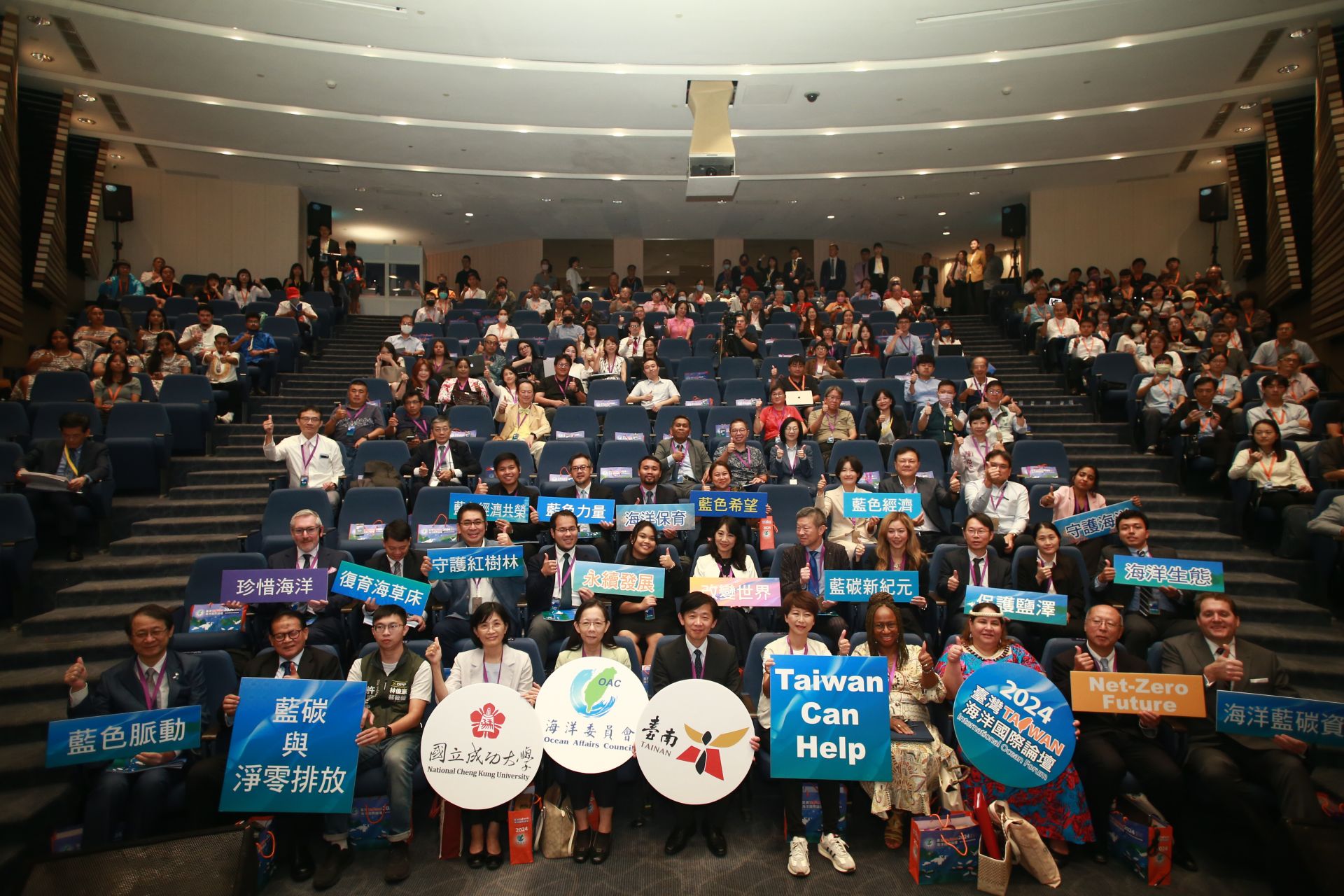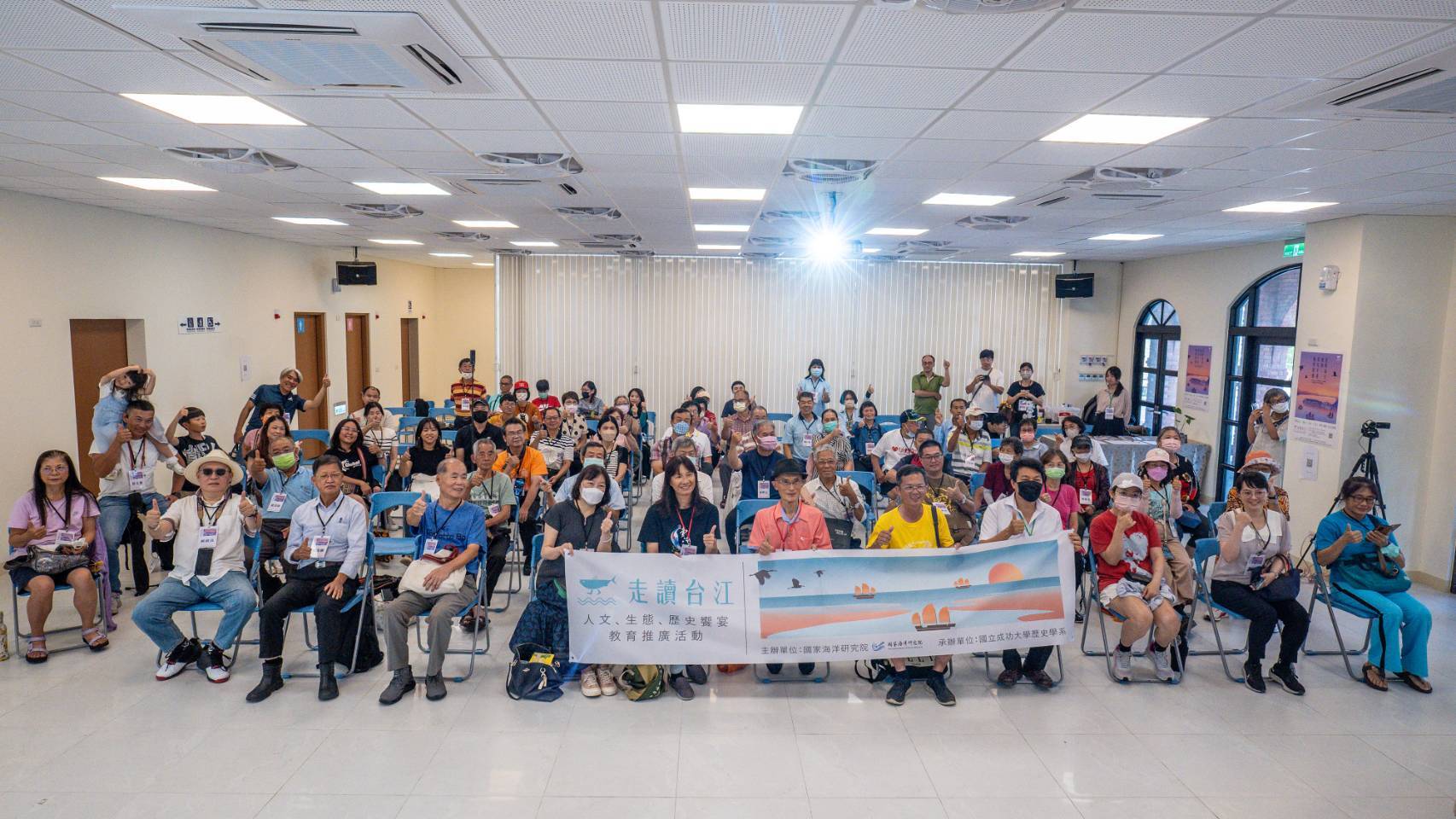SDG14
NCKU Hosts the 2023 Coastal Environment Planning Participatory Workshop: Exploring Options for Climate Change Adaptation
In response to the increasing global concern for climate change adaptation, the government passed the Climate Change Response Act in January 2023. The act emphasizes the integration of "comprehensive and community-based climate change adaptation policies and measures" and the need to "strengthen the resilience of vulnerable groups to cope with the impacts of climate change" when formulating climate change adaptation action plans. Despite these legislative efforts, connecting policies with local community needs to address challenges posed by climate change requires further exploration and practical implementation.
Professor Hsiao-Wen Wang (Scopus) from the Department of Hydraulic and Ocean Engineering at NCKU initiated a collaborative effort with Adrienne Dodd, a Ph.D. candidate in Landscape Architecture and Environmental Planning at the University of California, Berkeley, and Marina Stern, a lecturer in Landscape Architecture and Environmental Planning at UC Berkeley. Together, they organized the "2023 Coastal Environment Planning Participatory Workshop" from October 16 to 20.
The workshop aimed to discuss the impact of coastal environmental changes, such as sandbank loss, extreme weather events, and rising sea levels, on local development, coastal safety measures, and ecological resources. The focus was on the Daqiugou region, with the goal of providing insights into its future. Participants included local community leaders, community development associations, aquaculture fishermen, professionals, water gate managers, and representatives from relevant government agencies, such as the Sixth River Management Branch of Water Resources Agency, Water Resources Bureau of Tainan City Government, Southwest Coast National Scenic Area Headquarters of Tourism Administration, Taiwan Biodiversity Research Institute, and National Science and Technology Center for Disaster Reduction.
The workshop comprised four stages. The first stage, led by Professor Wang, introduced students to the multidimensional considerations in coastal environmental planning under the theme of "Bridging and Integrating Scientific Research and Public Participation in Decision-Making." The session included case studies from around the world to provide students with diverse perspectives on possible solutions.
In the second stage, Dr. Dodd and Lecturer Stern shared insights into successful participatory planning cases. This session aimed to inspire participants to think more diversely about related issues and learn participatory planning techniques.
The third stage involved field trips to the nearby Qi-Gu region, exploring local communities, fishponds, examples of sustainable fisheries, coastal environments, and sandy shoal areas. This hands-on experience allowed participants to gain a deeper understanding of current coastal environmental issues and interact with aquaculture fishermen of different age groups.
The fourth stage focused on discussions involving the public, relevant government agencies, and non-governmental organizations. The aim was to communicate environmental management planning from the perspective of future scenarios, emphasizing the role of public participation mechanisms as tangible manifestations of climate change adaptation and protection management. The workshop discussions sought to develop concrete plans to respond to the Climate Change Response Act.
Professor Wang and her research team have dedicated over ten years to environmental sustainable development research along the coasts of Tainan and Chiayi. Their work focuses on wetland ecological conservation and the ecosystem services provided by these areas. In 2021, their efforts were recognized with the Taiwan Sustainable Action Award for "Participatory Wetland Wise Use Planning with Science as a Bridge." Professor Wang has long led students into local communities, engaging in real-world problem-solving, linking various knowledge domains and cultural backgrounds, integrating theoretical knowledge and practical experience, and cultivating interdisciplinary talents for sustainable development contributions to society.
The workshop aimed to involve diverse participants from various backgrounds, providing rich course content and outdoor activities to enhance understanding of complex coastal environmental issues and the importance of citizen participation mechanisms in environmental planning. Through communication, connection, promotion, empowerment, participation, and raising awareness and action, the core goal is to promote grassroots processes and continuous social surveys and field research. This approach will link academic community expertise with community context-based knowledge, introduce international planning and research resources, deepen the understanding of needs among residents, non-governmental organizations, and relevant government agencies, and further promote climate change adaptation in coastal environments.
The partial results of this workshop will be exhibited at NCKU Future Venue during the university's anniversary celebration on November 12.
Professor Hsiao-Wen Wang (Scopus) from the Department of Hydraulic and Ocean Engineering at NCKU initiated a collaborative effort with Adrienne Dodd, a Ph.D. candidate in Landscape Architecture and Environmental Planning at the University of California, Berkeley, and Marina Stern, a lecturer in Landscape Architecture and Environmental Planning at UC Berkeley. Together, they organized the "2023 Coastal Environment Planning Participatory Workshop" from October 16 to 20.
The workshop aimed to discuss the impact of coastal environmental changes, such as sandbank loss, extreme weather events, and rising sea levels, on local development, coastal safety measures, and ecological resources. The focus was on the Daqiugou region, with the goal of providing insights into its future. Participants included local community leaders, community development associations, aquaculture fishermen, professionals, water gate managers, and representatives from relevant government agencies, such as the Sixth River Management Branch of Water Resources Agency, Water Resources Bureau of Tainan City Government, Southwest Coast National Scenic Area Headquarters of Tourism Administration, Taiwan Biodiversity Research Institute, and National Science and Technology Center for Disaster Reduction.
The workshop comprised four stages. The first stage, led by Professor Wang, introduced students to the multidimensional considerations in coastal environmental planning under the theme of "Bridging and Integrating Scientific Research and Public Participation in Decision-Making." The session included case studies from around the world to provide students with diverse perspectives on possible solutions.
In the second stage, Dr. Dodd and Lecturer Stern shared insights into successful participatory planning cases. This session aimed to inspire participants to think more diversely about related issues and learn participatory planning techniques.
The third stage involved field trips to the nearby Qi-Gu region, exploring local communities, fishponds, examples of sustainable fisheries, coastal environments, and sandy shoal areas. This hands-on experience allowed participants to gain a deeper understanding of current coastal environmental issues and interact with aquaculture fishermen of different age groups.
The fourth stage focused on discussions involving the public, relevant government agencies, and non-governmental organizations. The aim was to communicate environmental management planning from the perspective of future scenarios, emphasizing the role of public participation mechanisms as tangible manifestations of climate change adaptation and protection management. The workshop discussions sought to develop concrete plans to respond to the Climate Change Response Act.
Professor Wang and her research team have dedicated over ten years to environmental sustainable development research along the coasts of Tainan and Chiayi. Their work focuses on wetland ecological conservation and the ecosystem services provided by these areas. In 2021, their efforts were recognized with the Taiwan Sustainable Action Award for "Participatory Wetland Wise Use Planning with Science as a Bridge." Professor Wang has long led students into local communities, engaging in real-world problem-solving, linking various knowledge domains and cultural backgrounds, integrating theoretical knowledge and practical experience, and cultivating interdisciplinary talents for sustainable development contributions to society.
The workshop aimed to involve diverse participants from various backgrounds, providing rich course content and outdoor activities to enhance understanding of complex coastal environmental issues and the importance of citizen participation mechanisms in environmental planning. Through communication, connection, promotion, empowerment, participation, and raising awareness and action, the core goal is to promote grassroots processes and continuous social surveys and field research. This approach will link academic community expertise with community context-based knowledge, introduce international planning and research resources, deepen the understanding of needs among residents, non-governmental organizations, and relevant government agencies, and further promote climate change adaptation in coastal environments.
The partial results of this workshop will be exhibited at NCKU Future Venue during the university's anniversary celebration on November 12.
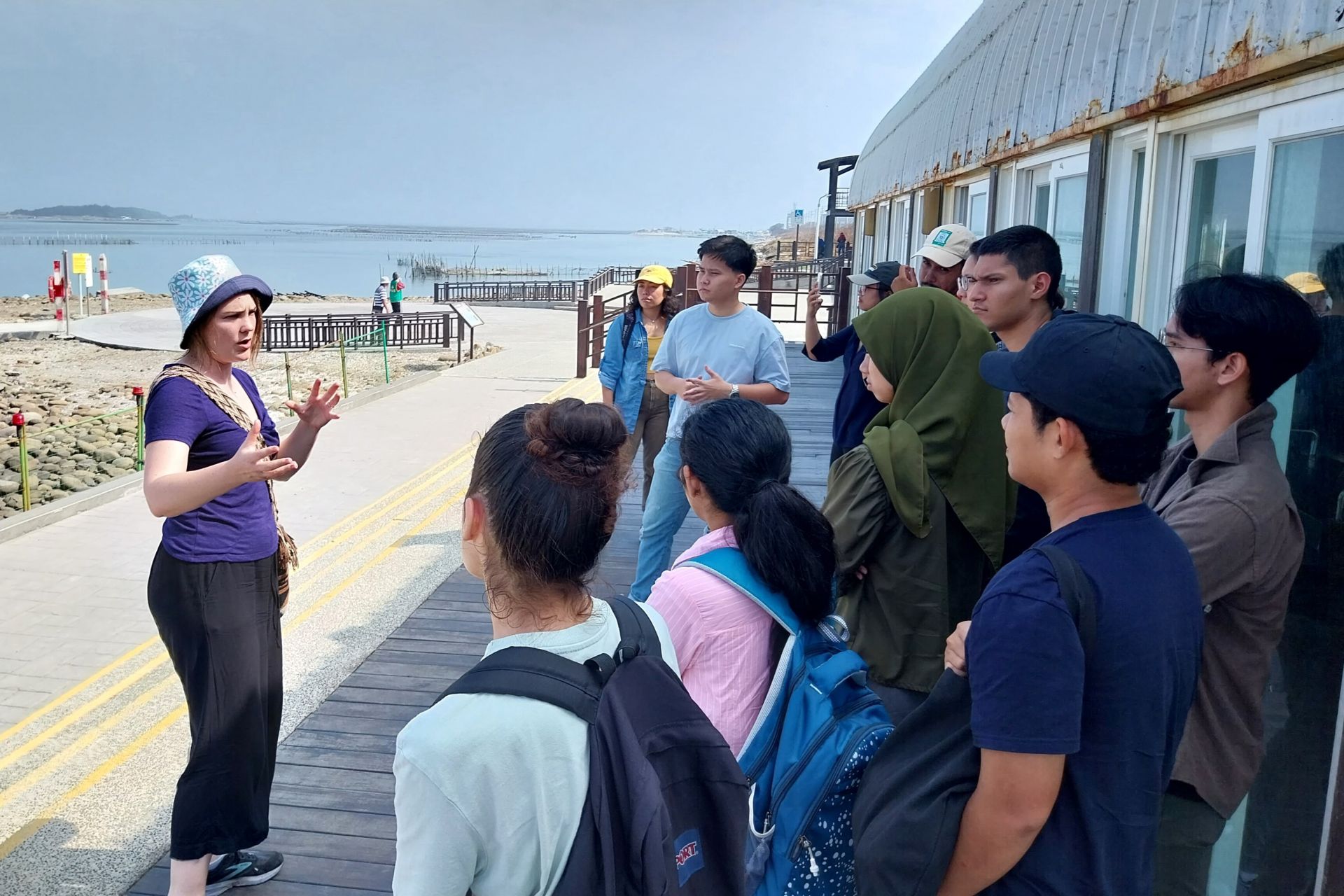
"2023 Coastal Environment Planning Participatory Workshop" Guides Students in Outdoor Field Study, Visiting Local Settlements, Fish Ponds, Fishing-Electricity Symbiosis, Coastal Environment, and Sandbar Areas
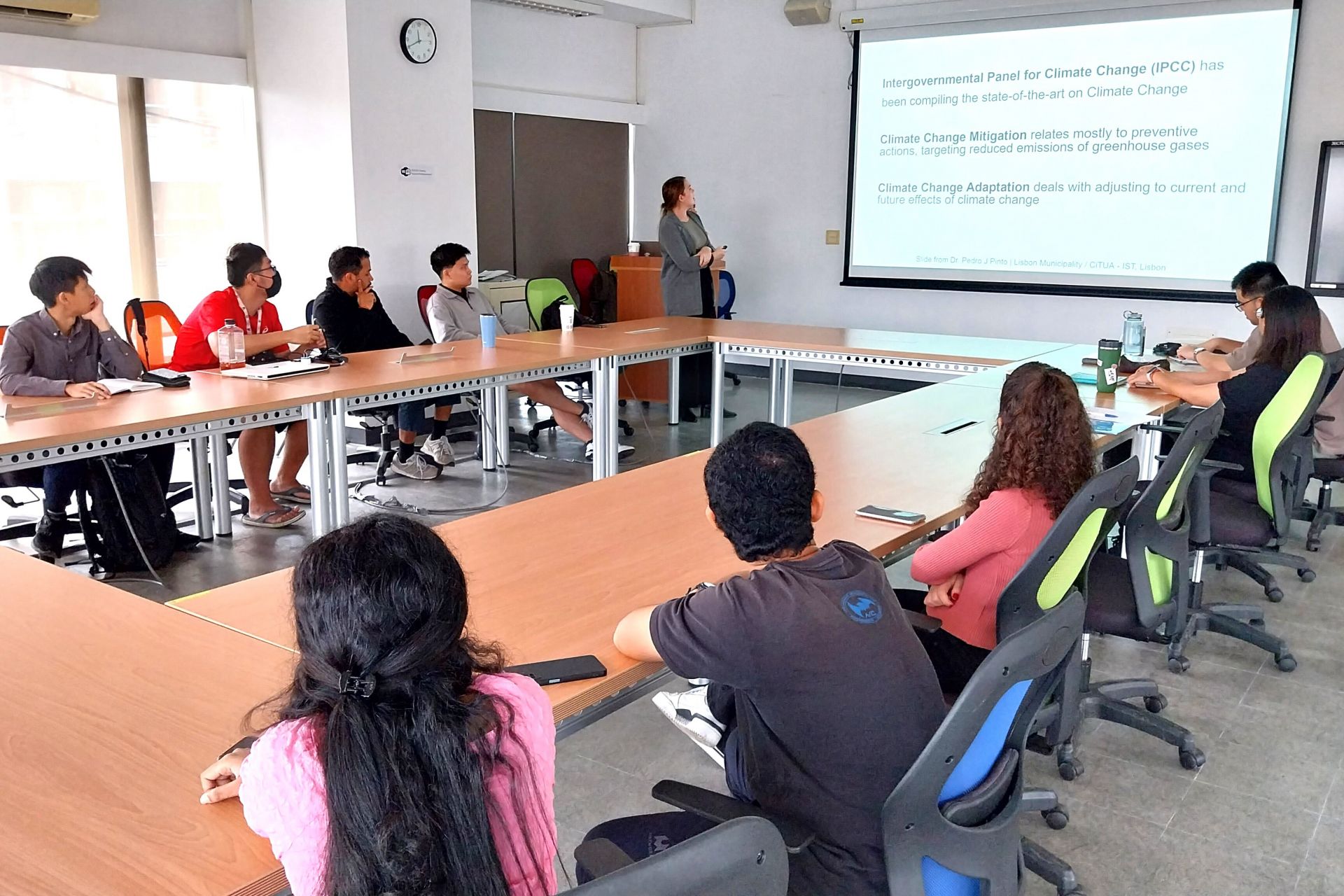
Lecture by Adrienne Dodd from the University of California, Berkeley, Explores Coastal Changes and Future Implications in the Daqiugou Area

"2023 Coastal Environment Planning Participatory Workshop: Collaborative Discussions on the Future of Daqiugou Region"
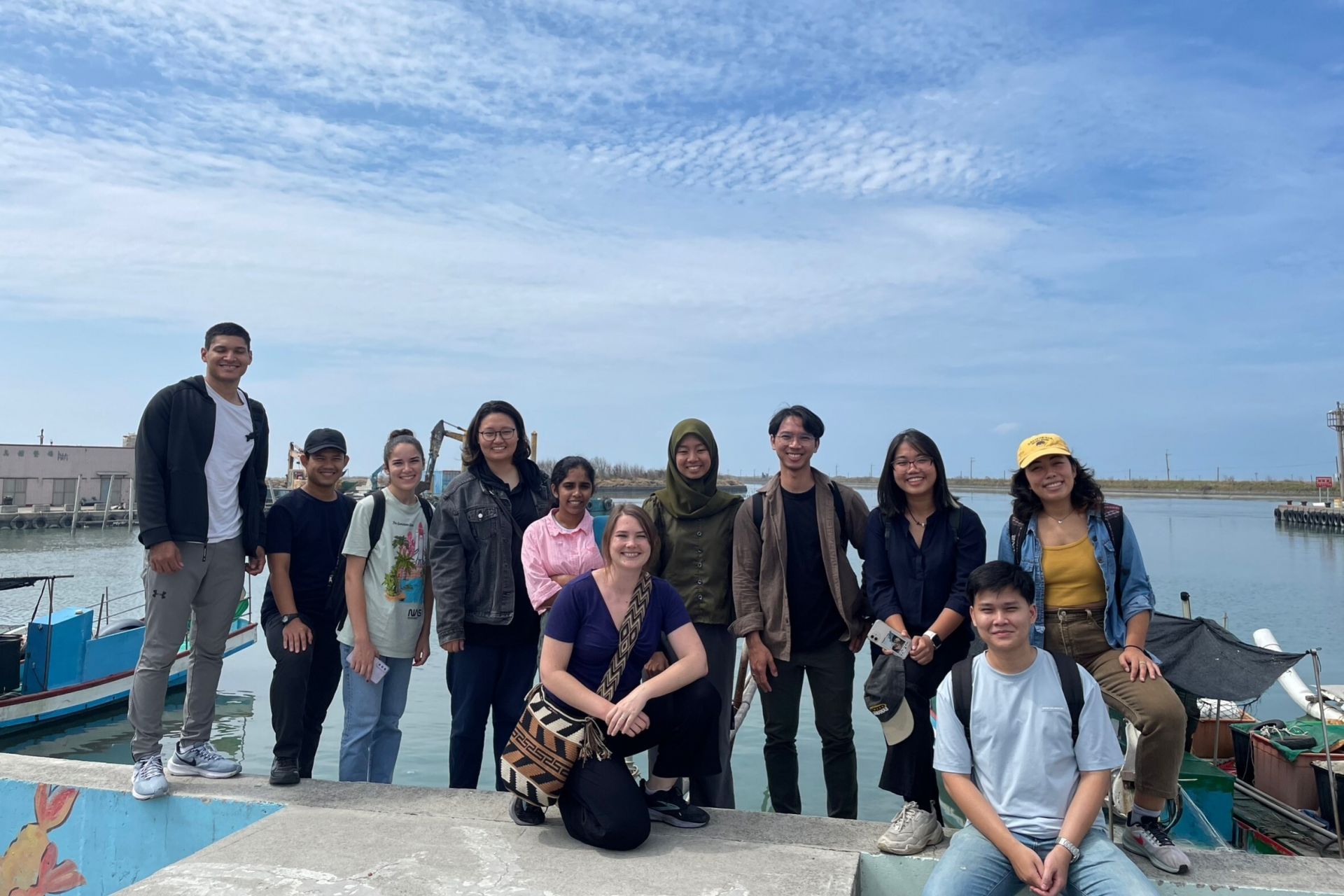
2023 Coastal Environment Planning Participatory Workshop: Outdoor Exploration for In-Depth Understanding of Coastal Environmental Issues







